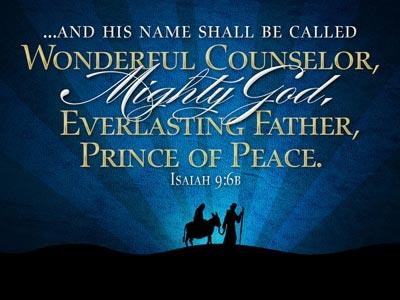-
A Friend, Comforter, Helper, Counselor Series
Contributed by Glenn Durham on Nov 28, 2017 (message contributor)
Summary: God draws near to those who love him and seek his help.
Scripture Introduction
The Apostle John uses the full name, “Holy Spirit” only three times in his book. In chapter one, he quotes another John (the Baptist) as saying that Jesus “baptizes with the Holy Spirit.” And at the end of this book, after the resurrection, Jesus says to his disciples, “Receive the Holy Spirit.” The only other use of “Holy Spirit” in John’s gospel is in John 14.
In spite of the relatively infrequent use of the title, however, John tells us more about the Holy Spirit than probably any other Bible author. And since all followers of Christ should understand the Spirit’s work, I hope to show you some of his glory and ministry today. We will be reading John 14.15-31.
[Read John 14.15-31. Pray.]
Introduction
Dr. James (J. I.) Packer is one of the best known and most well-respected theologians of our time. He points out that the Spirit is less understood among Christians because his primary work is pointing people to Jesus. Packer calls this a “floodlight ministry in relation to the Lord Jesus Christ.”
“I remember walking to church one winter evening to preach on the words, ‘He will glorify me’ (John 16.14), seeing the building floodlit as I turned a corner, and realizing that this was exactly the illustration my message needed. When floodlighting is well done, the floodlights are placed so that you do not see them; in fact, you are not supposed to see where the light is coming from; what you are meant to see is just the building on which the floodlights are trained. The intended effect is to make it visible when otherwise it would not be seen for the darkness, and to maximize its dignity by throwing all its details into relief so that you can see it properly. This perfectly illustrated the Spirit’s new covenant role. He is, so to speak, the hidden floodlight shining on the Savior.
“Or think of it this way. It is as if the Spirit stands behind us, throwing light over our shoulder on to Jesus who stands facing us. The Spirit’s message to us is never, ‘Look at me; listen to me; come to me; get to know me’, but always, ‘Look at him, and see his glory; listen to him and hear his word; go to him and have life; get to know him and taste his gift of joy and peace.’ The Spirit, we might say, is the matchmaker, the celestial marriage broker, whose role it is to bring us and Christ together and ensure that we stay together” (Your Father Loves You, 1986).
Packer is correct. The Holy Spirit turns our attention to the Messiah. Jesus is God in human form, God becoming sin, God bearing the wrath of divine holiness, God perfectly fulfilling the law, God dying to redeem mankind, God rising in victory over sin and death, and God reigning until all returns to submission to his good and perfect will. It is by the name of Jesus that salvation comes, for “there is no other name under heaven given among men by which we must be saved” (Acts 4.12). Our relationship with God must be mediated, and the appointed mediator is the God-Man, Jesus, the Christ. God the Spirit shines light on God the Son to draw us to the Messiah and salvation.
At the same time, we should not ignore the Spirit and his work. The first and greatest commandment is to love God with all your heart, soul, mind, and strength. To love the Spirit with the mind means we labor in the word to know who this person is and what he does. To love him with the heart draws out our affections for his special ministry in and for us. To love the Holy Spirit with the soul deepens our communion with him, as an individual person in the Trinity. To love him with our strength includes being devoted to his glory and praise, as surely as we are to the Father and Son.
Augustine preached and pastored about 400 years after the resurrection. His prayer provides an example of fulfilling the greatest commandment in relation to the Spirit:
“Breathe in me, O Holy Spirit, that my thoughts may all be holy.
Act in me, O Holy Spirit, that my work, too, may be holy.
Draw my heart, O Holy Spirit, that I love but what is holy.
Strengthen me, O Holy Spirit, to defend all that is holy.
Guard me, then, O Holy Spirit, that I always may be holy. Amen.”
And we begin loving the Holy Spirit by observing (first) that he is God.
1. The Holy Spirit Is God
We see this in our text by the way in which the one work of God is related to all three persons.

 Sermon Central
Sermon Central



